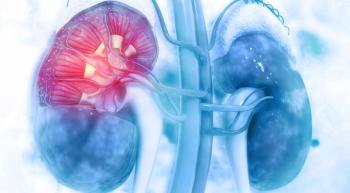
- September 2025
- Volume 19
- Issue 3
FDA Approves SIR-Spheres Y-90 Resin Microspheres for Unresectable HCC
The selective internal radiation therapy SIR-Spheres has been approved by the FDA for use in patients with unresectable hepatocellular carcinoma.
The FDA has approved SIR-Spheres Y-90 resin microspheres for the treatment of patients with unresectable hepatocellular carcinoma (HCC), per a news release from Sirtex Medical, the developer of the product.1
According to the announcement, this approval makes SIR-Spheres the first selective internal radiation therapy, or radioembolization therapy, approved in both metastatic colorectal cancer and HCC. SIR-Spheres are biocompatible resin microspheres that are between 20 and 60 microns in diameter.2 They contain yttrium-90 (Y-90), a high-energy pure beta-emitting isotope that yields no primary gamma emission.
“This study moves the field of radioembolization forward with reproducible dosimetry outcomes and a strong safety profile linked to very positive clinical results,” Armeen Mahvash, MD, co-principal investigator of DOORwaY90 and interventional radiologist at MD Anderson Cancer Center, stated in the release. “This will give multidisciplinary care teams the confidence to recommend SIR-Spheres for HCC treatment.”
What led to SIR-Spheres’ approval in HCC?
Approval of SIR-Spheres is supported by data from the prospective, multicenter, open-label single-arm DOORwaY90 study (NCT04736121), which evaluated the efficacy of SIR-Spheres in patients with Barcelona Clinic Liver Cancer (BCLC) stage A, B1, and B2 HCC, with single lesion size of at most 8 cm.2 One hundred patients were enrolled, including at least 65 in the interim primary efficacy cohort.1
The trial met its prespecified primary endpoint of best overall response rate (ORR) over 9 months and duration of response (DOR) as defined by localized mRECIST criteria.1,2 The best ORR was 98.5%, and the median DOR was greater than 300 days.1 All evaluable patients demonstrated response to treatment, yielding a 100% disease control rate.
The mean age of subjects was 68.4 plus or minus 10 years (range, 33-91), according to the drug’s current package insert, and 75% of participants were male.3 The majority of patients (80%) had early HCC at baseline, and 3% had advanced HCC. Additionally, 72.4% of the 127 tumors found in patients enrolled were in the right lobe, ranging from 0.3 to 8.0 cm in diameter.
SIR-Sphere’s Safety Profile
According to safety information for SIR-Spheres listed on Sirtex Medical’s website, the most common adverse events (AEs) associated with the treatment are fever, mild to moderate liver function test abnormalities, abdominal pain, nausea and vomiting, and diarrhea.4 The website also mentions that certain premedications are recommended.
The drug’s current package insert contains warnings for injury to extrahepatic structures such as the esophagus, stomach, gallbladder, duodenum, or pancreas in the case of inadvertent delivery to these areas, along with radioembolization-induced liver disease, radiation pneumonitis, and limited radiation dosimetry planning precision.3
How are SIR-Spheres administered?
SIR-Spheres are implanted into hepatic tumors via injection through either the common hepatic artery, the right or left hepatic artery, or using a catheter or chemotherapy catheter port for greater selectivity.
Y-90 Therapy Previously Approved for HCC
On March 19, 2021, the FDA approved
That approval followed data reported from the retrospective LEGACY trial, in which TheraSphere generated an overall response rate of 72.2% at 4 weeks per blinded independent central review, either as neoadjuvant or stand-alone treatment in 143 evaluable patients with unresectable HCC.6
At a median follow-up of 6 months (95% CI, 24.7-34.6), 76.1% of patients derived a duration of response of longer than 6 months with TheraSphere per modified RECIST criteria, meeting both primary end points of the study.
References
- Sirtex Medical's SIR-Spheres Y-90 resin microspheres receive FDA approval for the treatment of unresectable hepatocellular carcinoma. Sirtex Medical Inc. News release. July 7, 2025. Accessed July 7, 2025. https://www.prnewswire.com/news-releases/sirtex-medicals-sir-spheres-y-90-resin-microspheres-receive-fda-approval-for-the-treatment-of-unresectable-hepatocellular-carcinoma-302498439.html
- Selective internal radiation therapy (SIRT) using SIR-Spheres Y-90 resin microspheres on DoR & ORR in unresectable hepatocellular carcinoma patients (DOORwaY90). ClinicalTrials.Gov. February 3, 2021. Updated February 5, 2025. Accessed July 7, 2025. https://clinicaltrials.gov/study/NCT04736121
- SIR-Spheres Y-90 resin microspheres. Package insert. Sirtex Medical Inc. July 7, 2025. Accessed July 7, 2025. https://www.sirtex.com/Media/55rprxv2/SSL-US-17%20SIR-Spheres%20US-IFU%20R4.pdf
- SIR-Spheres Y-90 resin microspheres, risk and potential adverse events. Sirtex Medical Inc. Accessed July 7, 2025. https://www.sirtex.com/sir-spheres/risks_adverse-events
- Boston Scientific receives FDA approval for TheraSphere Y-90 glass microspheres. Boston Scientific Corporation. News release. March 18, 2020. Accessed March 18, 2020. https://prn.to/3qWiKRr
- TheraSphere Y-90 glass microspheres LEGACY study. Boston Scientific. 2021. Accessed January 21, 2021. http://bit.ly/35THMsX
Articles in this issue
4 months ago
How Patients Shape Oncology Nurses' Lives4 months ago
Where Is the Care in Health Care?Newsletter
Knowledge is power. Don’t miss the most recent breakthroughs in cancer care.





























































































